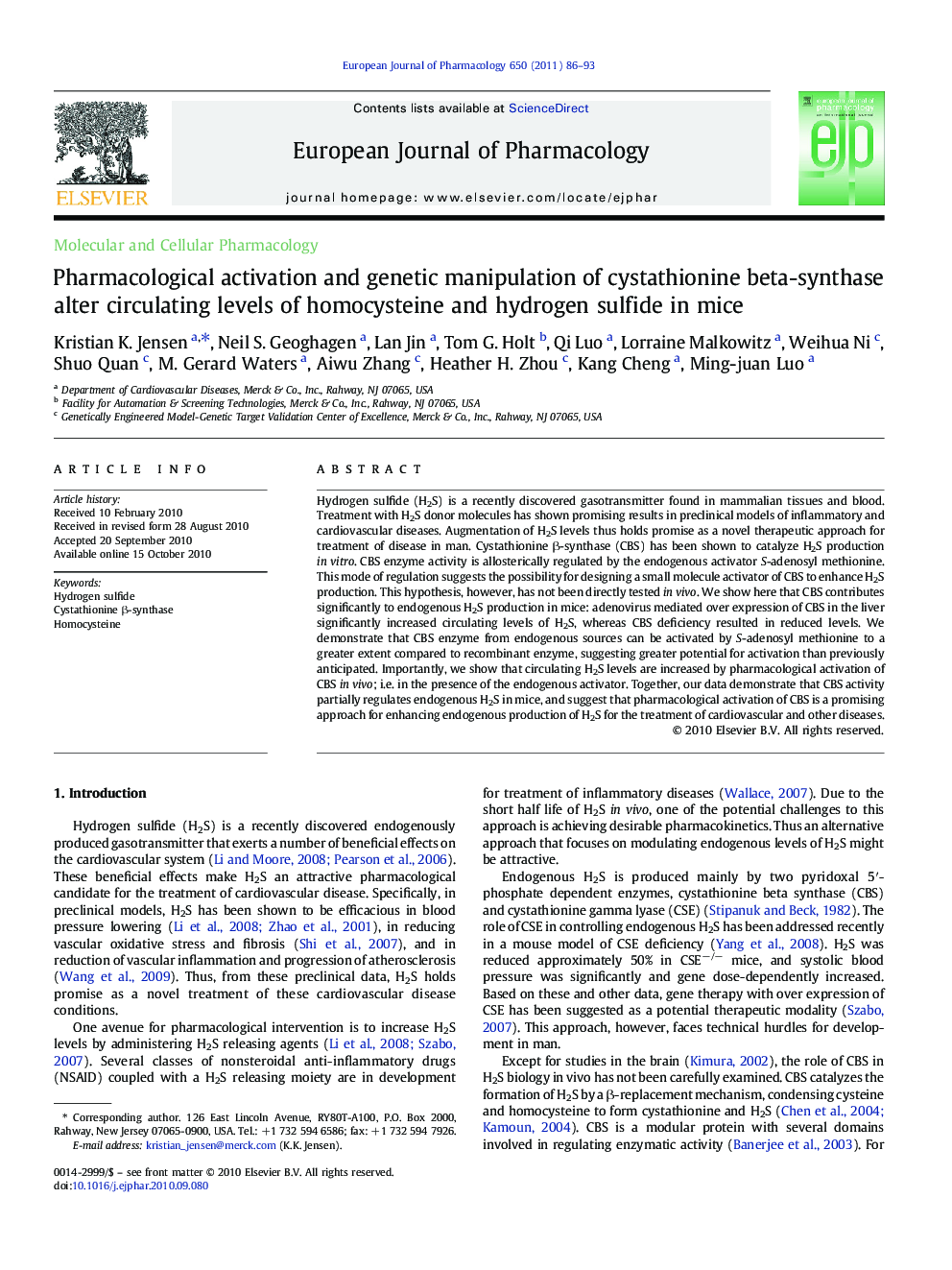| Article ID | Journal | Published Year | Pages | File Type |
|---|---|---|---|---|
| 2533194 | European Journal of Pharmacology | 2011 | 8 Pages |
Hydrogen sulfide (H2S) is a recently discovered gasotransmitter found in mammalian tissues and blood. Treatment with H2S donor molecules has shown promising results in preclinical models of inflammatory and cardiovascular diseases. Augmentation of H2S levels thus holds promise as a novel therapeutic approach for treatment of disease in man. Cystathionine β-synthase (CBS) has been shown to catalyze H2S production in vitro. CBS enzyme activity is allosterically regulated by the endogenous activator S-adenosyl methionine. This mode of regulation suggests the possibility for designing a small molecule activator of CBS to enhance H2S production. This hypothesis, however, has not been directly tested in vivo. We show here that CBS contributes significantly to endogenous H2S production in mice: adenovirus mediated over expression of CBS in the liver significantly increased circulating levels of H2S, whereas CBS deficiency resulted in reduced levels. We demonstrate that CBS enzyme from endogenous sources can be activated by S-adenosyl methionine to a greater extent compared to recombinant enzyme, suggesting greater potential for activation than previously anticipated. Importantly, we show that circulating H2S levels are increased by pharmacological activation of CBS in vivo; i.e. in the presence of the endogenous activator. Together, our data demonstrate that CBS activity partially regulates endogenous H2S in mice, and suggest that pharmacological activation of CBS is a promising approach for enhancing endogenous production of H2S for the treatment of cardiovascular and other diseases.
